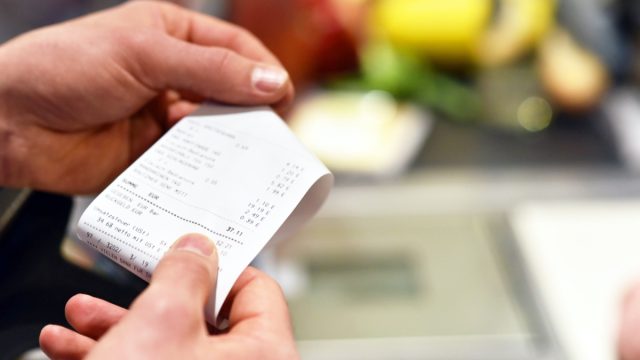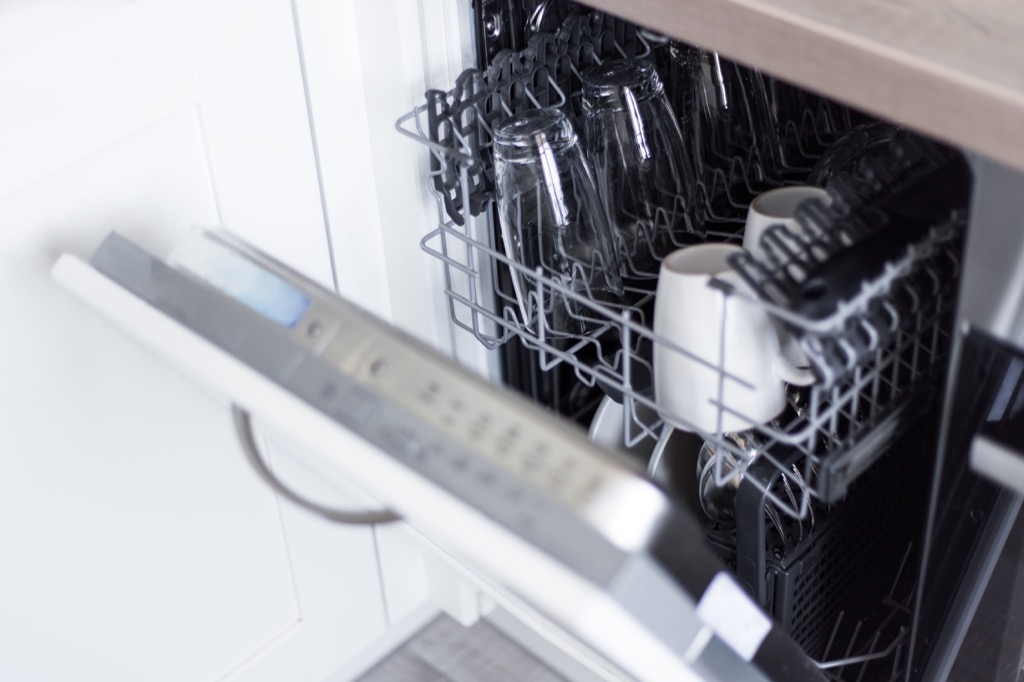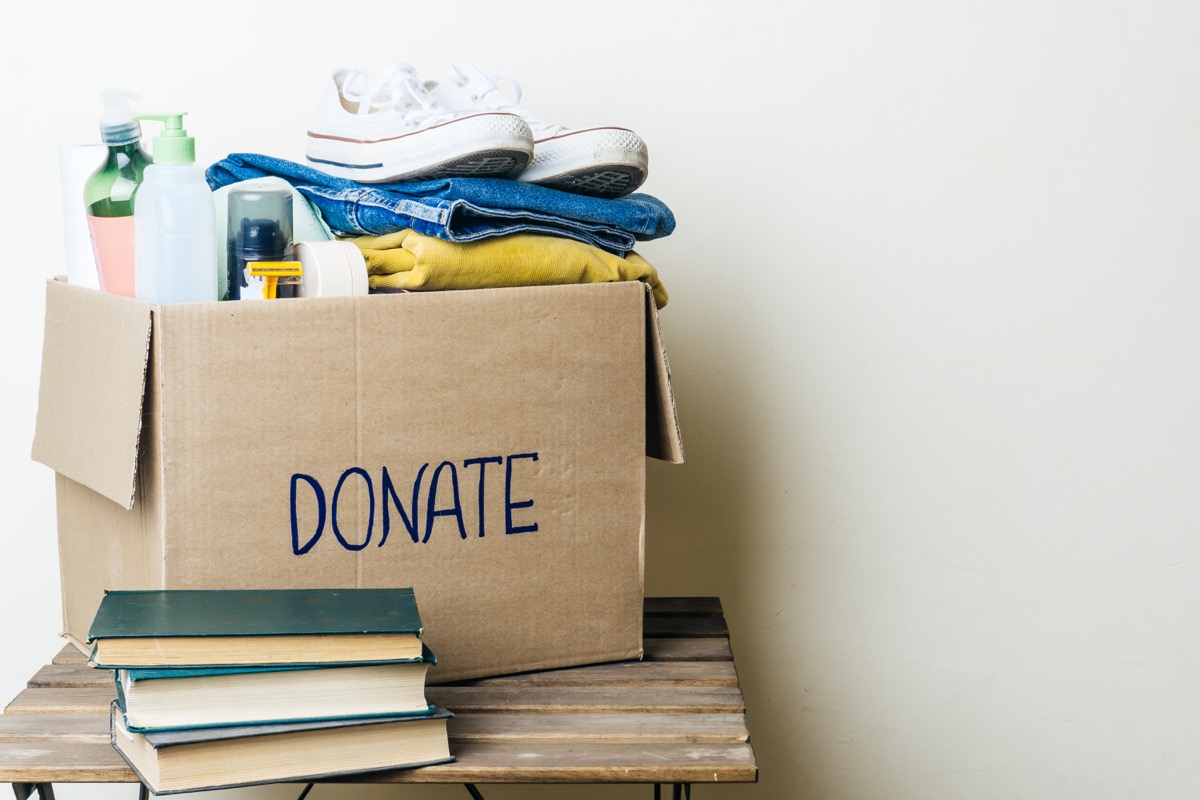6 Types of Receipts You Should Always Save
You never know when you'll need them—or why.

Staying on top of your finances is easier said than done. That's why many people do the bare minimum: They keep to their budget, save a small percentage of their paycheck per month, and file their taxes once a year. But if you really want to get ahead, you need to do more—and that includes saving receipts when appropriate. Here, accountants and financial experts tell us the types of receipts you should always keep. Doing so will save you time, headaches, and potentially even thousands of dollars in the long run.
READ THIS NEXT: The IRS Just Warned Taxpayers to Never Take This Deduction.
1
Receipts for self-employment expenses

Holding onto receipts for self-employment expenses will save you hours (and dollars!) on Tax Day. "Many of the costs you incur when working for yourself, such as those for marketing, office expenses, insurance, and travel, can be written off when you submit your taxes," says Steven Wilson, founder of the personal finance website Bankdash. "Utility costs and costs related to running a home-based company could also be covered." To set yourself up for success, keep track of all energy bills, rent payments, mortgage information, and receipts for business-related purchases.
In case of an audit, you'll want to save these for the long term, too (the IRS can go back up to six years in some circumstances). "If you get audited, a lot of the impact of that will depend upon who [your auditor is] and if they're inclined to be nice or inclined to be difficult," says Ryan Reiffert, business and estate planning attorney and founder of Law Offices of Ryan Reiffert, PLLC. "If they're inclined to be difficult, having a huge pile of receipts to substantiate as many bona fide business expenses as possible will go a long way toward preserving those deductions and saving you money."
2
Receipts for major purchases

A major purchase could be something as large as a dishwasher or as small as an investment bag. "These receipts can be used to return an item if it is defective, to get a refund if the item is not what was expected, or to exchange the item for something else," says Michael Ryan, financial planner and founder of financial literacy website Michael Ryan Money. "Major purchase receipts can also be used to prove ownership of an item in the event of a dispute." Keep track of these receipts easily by scanning them or sending them to a specific folder in your email.
READ THIS NEXT: The No. 1 Reason You Could Get Audited by the IRS, Experts Warn.
3
Receipts for warranties or guarantees

If your purchase has a warranty or guarantee, you should always save the receipt for as long as the terms apply. "These receipts can be used to get a refund or replacement if an item breaks or does not work as expected," says Ryan. "Warranties and guarantees can also be used to get free repairs." For example, Ryan notes that his water heater had a lifetime warranty. "It saved me $1,500 by being able to pull up the receipt from 13 years ago," he notes.
4
Receipts for repairs

Whether it's plumbing work done on your house or mechanical work done on your car, you'll want to save the receipt. "These receipts can be used to get a refund or credit if a repair is not done properly or if the service is not up to par," says Ryan. "They can also be used to get a discount on future repairs or services." Again, you'll want to digitize these receipts, as you may not realize you need a refund for years after the initial job.
For more money advice delivered straight to your inbox, sign up for our daily newsletter.
5
Receipts for child care expenses

This is another receipt you can use for your taxes—and you don't even have to be self-employed. "Child or dependent care expenditures paid to a babysitter, daycare, day camp, after-school program, or another care provider may be eligible for a tax credit," says Wilson. "Additional costs, such as the cost of a nanny, cook, or housekeeper hired to provide services or care for your kid or dependent, may also qualify if the care is done in your home." These costs only apply if you paid for the services in order to work or search for a job. Ask your accountant if you qualify.
6
Receipts for charitable donations

According to the IRS, you can deduct contributions of money or property made to qualified charitable organizations. In order to do so, though, you'll need to itemize your deductions, which means showing your receipts. Most people can deduct up to 50 percent of their adjusted gross income. Redirecting some cash to a charity that needs it? Sounds like a win-win.





















